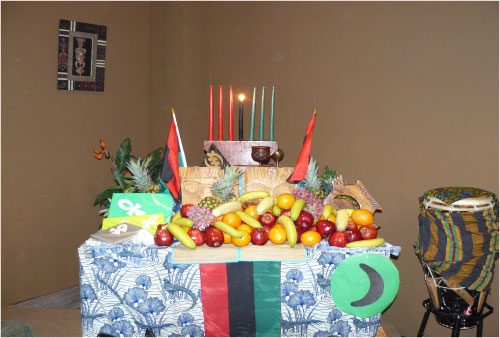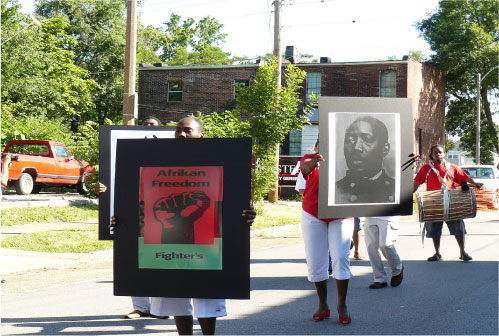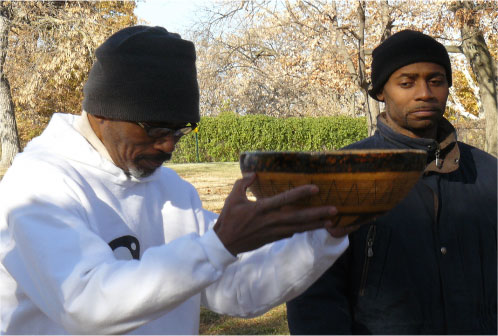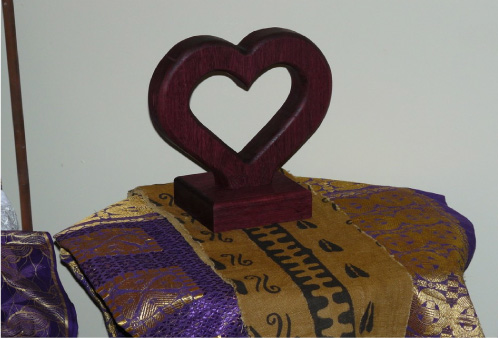
You can tell a lot about a people by looking at their holidays. Holidays promote and reflect the cultural norms of a given society. Through these celebrations, communities remember the people, events, issues and ideas that have shaped them while crafting shared experiences and creating bonds to the ideals by which they chart their future. As Afrikans, our celebrations were and are created to reinforce and promote the tenets of Afrikan culture which center on, yet, are not limited to, connection to spirit, ancestral recognition, revolution and Afrikan liberation.
Kwanzaa is a lively and enriching, seven day celebration of the Black Value System called the Nguzo Saba. Nguzo Saba is in the Kiswahili language of East and Central Afrika and literally means "Seven Pillars." It is further translated to mean "Seven Principles." These seven pillars or principles are the foundations upon which Afrikan culture rests. These seven basic values can be found in practice throughout the various Afrikan groups that make up the Diaspora and can be traced back to antiquity, existing long before the establishment of the first european civilization. It is estimated that over 30 million people celebrate Kwanzaa today. [ Learn More ] |
 |
The Civil War ended in April of 1865. The word of the ending of this war and subsequent ending of chattel slavery of Afrikans traveled slowly across the united states. Afrikans in Texas got the word various dates through out the state between June 12 and 20th. Because most heard the word during one of days between June 13th and 19th the term Juneteenth Freedom Days was coined. Oral reports from those of that indicated that once the word was heard spontaneous celebrations broke out. Afrikans in Missouri did not get the word until Augusti 1865. [ Learn More ] |
< |
Masanyiko Ya Utani (Gathering of Allies) is a celebration to recognize our historical connection with the native people of this land, which predates european invasion. It celebrates the Afrikan and Native american shared struggle for cultural self-determination and sheds light upon the nefarious history of thanksgiving, a history steeped in betrayal and deceit. Afrikans and Native american people had connections with one another thousands of years before the europeans brought them back together as a part of the transatlantic slave trade. Nubians had visited western lands during the time of the Nubian empire. [ Learn More ] |
 |
|
The Akoma celebration was created by Teach Jamaa nearly a decade ago to further celebrate Black Love day. With the blessing of Sister Ayo Handy - Kendi the celebration was extended to 3 days (Februari 13th - 15th) to ensure time for all the activities and to extend and expand the love. Akoma is an Akan saying that means "Have a Heart" in English. In the early years Women of Sudan Illustrators held an annual "Community healing ceremony at Sabayet for this holiday. [ Learn More ] |
 |
